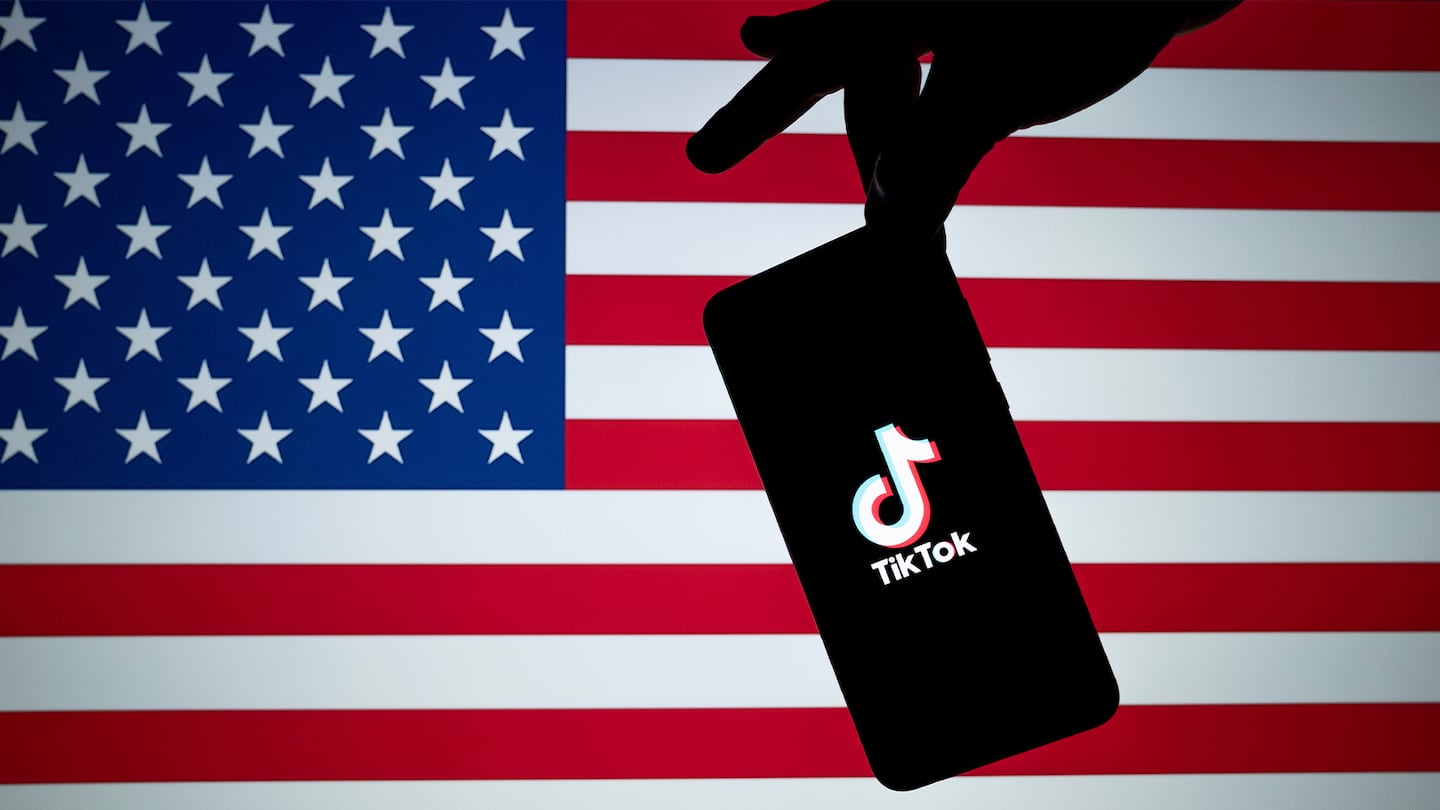
The Business of Fashion
Agenda-setting intelligence, analysis and advice for the global fashion community.

Agenda-setting intelligence, analysis and advice for the global fashion community.

This holiday season wasn’t very merry for TikTok.
Just days before calendars flipped to 2023, US president Joe Biden signed a spending bill for the coming year that included a section banning fashion’s new favourite app from federal government devices. The “No TikTok on Government Devices Act,” as it’s unimaginatively titled in the bill, gives the government 60 days to establish guidelines for imposing the new restriction.
Since 2020, more than 20 US states have also taken steps to banish the Chinese-owned app from some or all government devices, with momentum lately picking up. Earlier last month, a bipartisan group of US lawmakers proposed legislation to block it from operating in the US entirely. That bill faces a tough road to actually pass into law, but it illustrates just how much of a threat the US considers TikTok, despite its reputation as a venue for videos of dancing teens, goofy animals and viral food trends.
In the coming months, US authorities appear poised to step up the pressure even further, which could in turn have consequences for the more than 100 million TikTok users in the US, as well as the numerous fashion businesses reaching audiences through it.
ADVERTISEMENT
What the outcome will be is uncertain. Possibilities at the moment include a complete ban, a forced sale to a non-Chinese company or more stringent regulations that could affect how TikTok manages data or its ability to accept advertising dollars. But with the Republican party, which has led the charge against TikTok, gaining control of the US House of Representatives, pressure on the app seems set to grow.
“Congress hates TikTok,” said James Andrew Lewis, director of the strategic technologies programme at the Center for Strategic and International Studies, a Washington DC think-tank.
As TikTok’s popularity has grown, so have fears that the Chinese government could access TikTok’s vast trove of data on US users through its parent company, ByteDance, or take control of the algorithm that determines what users see, allowing China to, in the words of FBI director Christopher Wray, “manipulate content, and if they want to, to use it for influence operations.” The issue first gained attention under former president Donald Trump, whose attempt to ban the app was blocked by a court and later revoked by Biden.
Chinese propaganda videos are not near the top of the list of what users watch, but social media more broadly has become a battleground where foreign agents, including some based in China, run strategic influence campaigns and attempt to interfere in elections. TikTok has pushed back against claims the Chinese Communist Party might use it to sway viewers, stating the Chinese government does not control ByteDance or TikTok. In a statement, a spokesperson called the US bans of the app rushed and politically motivated.
There are other concerns about the data TikTok collects, too. Cybersecurity experts warn foreign actors could use it to gain access to confidential information on members of government or employees of US companies dealing with critical infrastructure. Despite efforts to wall off TikTok from China, including enlisting Texas-based Oracle to store its US data, they say it’s effectively impossible to do as long as the app is Chinese-owned, since Beijing can force private companies in the country to turn over data. ByteDance also recently admitted it accessed the data of journalists from the Financial Times and BuzzFeed News as it sought to track down company leaks, raising concerns in Europe, too.
While the idea of banning TikTok outright in the US might seem outlandish, it’s not outside the realm of possibility. India, for one, has banned it. Even so, it’s not the most probable course of action in the US. The company hasn’t broken any US laws, and while it’s not impossible to institute a general ban, it would be difficult, according to Lewis. As Trump discovered, the effort could face legal challenges.
But there are other steps lawmaker can take. One option would be compelling ByteDance to sell the business. Republican congress member Mike Gallagher, who introduced legislation to ban the app, has said a sale to an American company would be an “acceptable outcome.” The idea was floated in 2020 under Trump as well, with companies including Walmart signalling interest in buying the app.
ByteDance was reluctant to part with TikTok even then. Its massive success since probably makes the company less amenable to letting it go, and it’s doubtful Beijing would support the sale of one of the rare Chinese apps with a truly global audience. The Biden administration is also reportedly divided on whether to try pushing ByteDance to divest.
ADVERTISEMENT
Another path would be for TikTok to broker a deal with US authorities to be more transparent and implement more measures to ensure it handles and stores user data in a way that would allay their security concerns. Late last year the company tried to reach such an agreement, but many government officials were opposed to the deal. A spokesperson for TikTok said the company continues working with the US government to find a solution that meaningfully addresses those concerns at the federal and state levels.
But Lewis said no deal might be tough enough to satisfy Republicans and the Department of Justice. An alternative could lie in targeting TikTok’s advertising business, which provides a fast-growing revenue stream.
“The president could use his IEEPA — International Emergency Economic Powers Act — authorities to block financial transactions, so an advertiser wouldn’t be able to pay TikTok,” Lewis said. “Congress could force the administration to do that if it wasn’t willing to do that on its own.”
Whatever happens, TikTok has become a political target in the US, especially for Republicans. That alone could hurt its reputation and scare off advertisers. Unlikely scenarios can also wind up coming to pass, as happened with Elon Musk’s chaotic takeover of Twitter, which led to numerous advertisers reconsidering whether they wanted to be on the platform.
But that doesn’t mean fashion brands should panic or expect the platform to vanish. Lewis expects politicians to use TikTok to score rhetorical points when the new session of congress gets underway, but in practice lawmakers have been cautious when it comes to moving against it. Its large audience and popularity might actually insulate it somewhat by making it risky to disrupt the public’s use of the app.
“Nobody wants to get on the wrong side of the voters. That’s not going to change,” Lewis said. “For now, companies would do best to sit tight, see what plays out. There’s a lot of options that would let TikTok continue to operate in some fashion, and that’s the most likely outcome.”
Despite TikTok’s booming popularity and lower cost compared to Instagram, brands and experts say the return on ad spend doesn’t yet match more-established platforms, though that doesn’t mean brands can ignore it either.
Instagram has more users, but for a growing number of brands and creators, TikTok has replaced the Meta-owned social network as fashion’s go-to marketing platform.
The video app has become grounds for a new kind of fashion discourse based in 60-second show reviews, styling and trend forecasting — bringing high fashion discussions to younger, broader audiences.

Marc Bain is Technology Correspondent at The Business of Fashion. He is based in New York and drives BoF’s coverage of technology and innovation, from start-ups to Big Tech.
TikTok’s first time sponsoring the glitzy event comes just as the US effectively deemed the company a national security threat under its current ownership, raising complications for Condé Nast and the gala’s other organisers.
BoF Careers provides essential sector insights for fashion's technology and e-commerce professionals this month, to help you decode fashion’s commercial and creative landscape.
The algorithms TikTok relies on for its operations are deemed core to ByteDance overall operations, which would make a sale of the app with algorithms highly unlikely.
The app, owned by TikTok parent company ByteDance, has been promising to help emerging US labels get started selling in China at the same time that TikTok stares down a ban by the US for its ties to China.